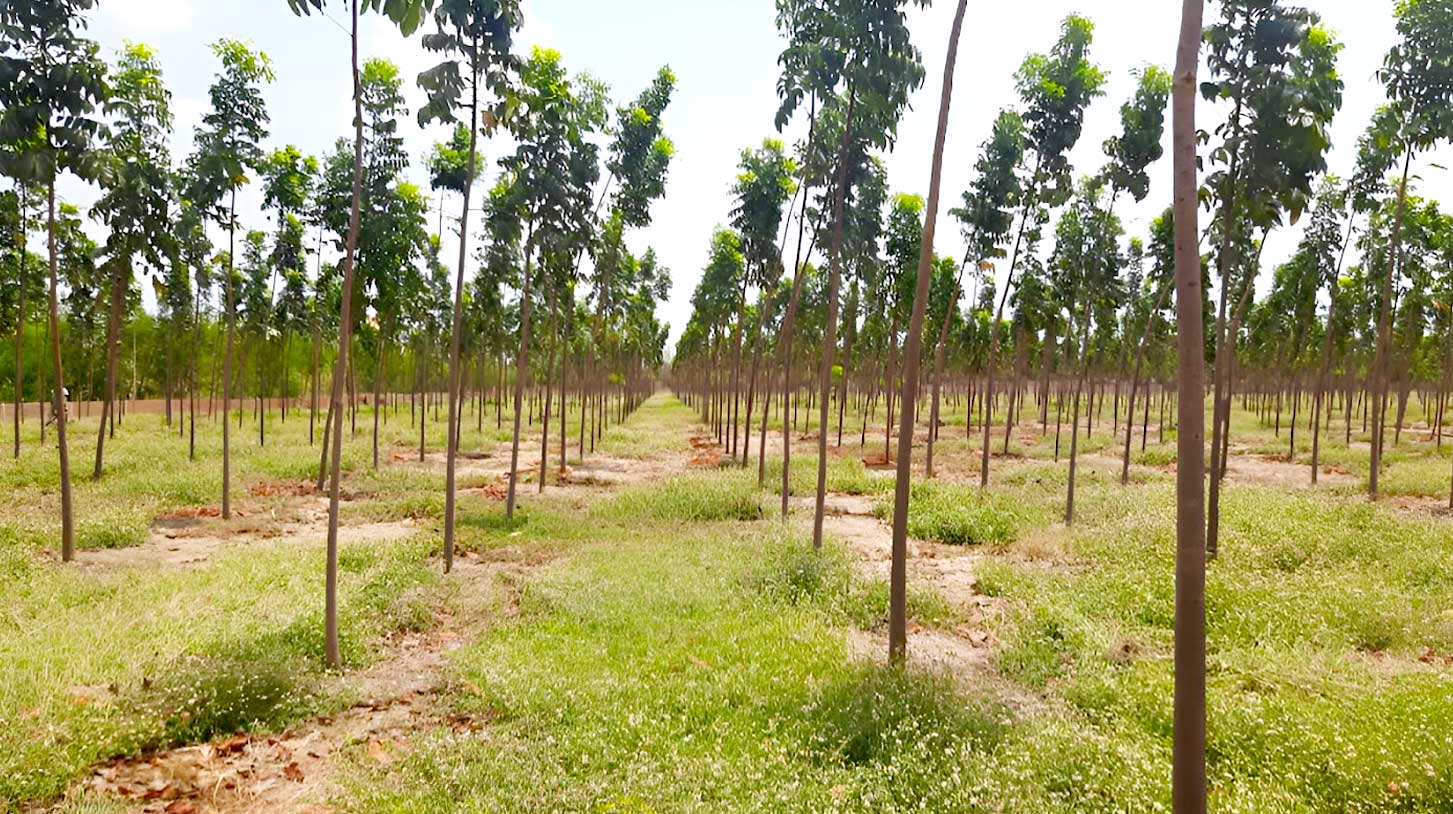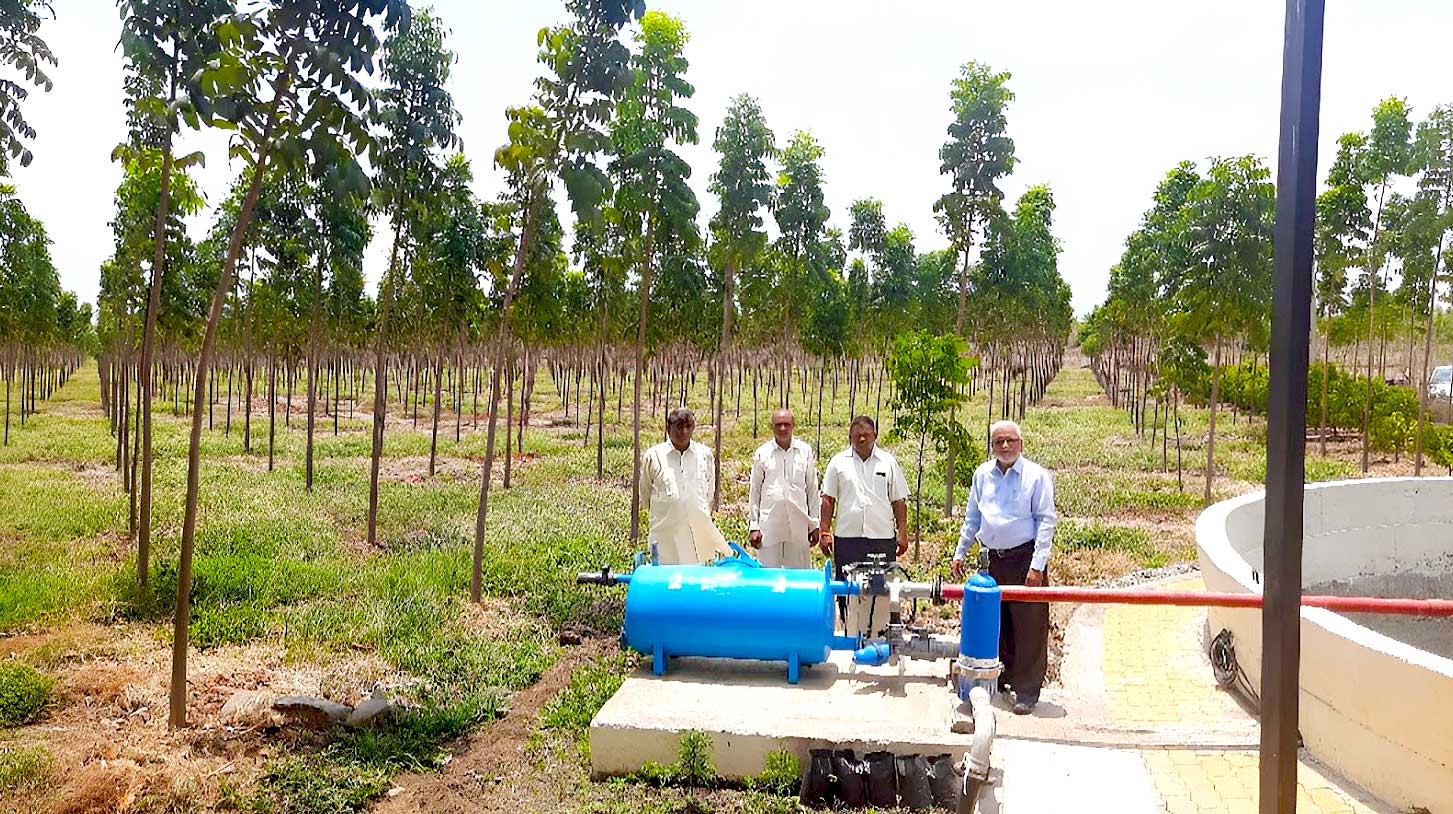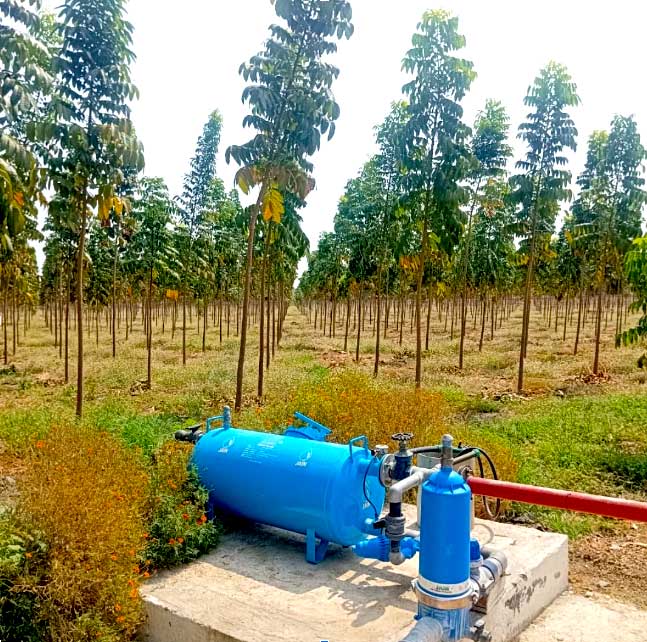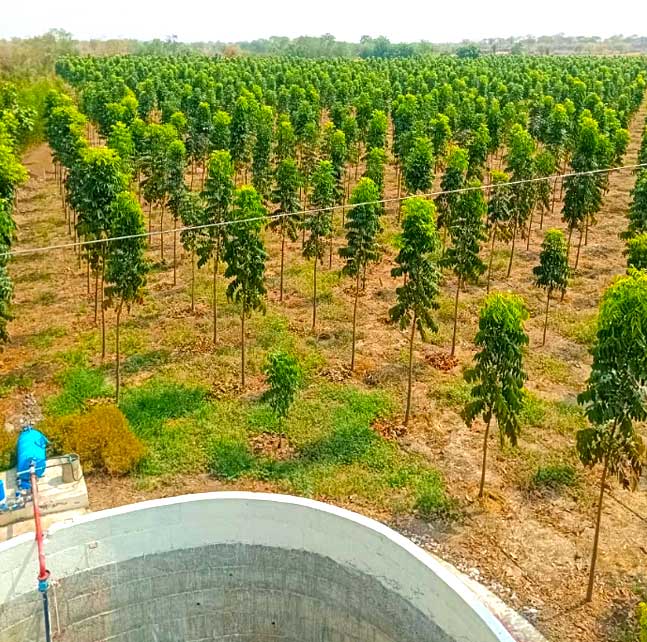Welcome to Jain Irrigation Systems Ltd.

Blog at Jains - Agroforestry: A Sustainable Agriculture - Hope of Farmers
Farmers face a plethora of challenges today: labor shortages, fluctuating crop prices, and rising input costs. Climate change exacerbates these issues, making traditional farming increasingly untenable. However, agroforestry offers a sustainable alternative, providing farmers with a low-risk, low-input agricultural model that is a little more immune to climate variability. Though the economic returns from agroforestry might be modest, its resilience and sustainability make it an attractive option for farmers.

Rajwad, a tiny village in Parola taluka, Jalgaon district, has been a beacon of progressive farming. Under the leadership of Shri Sahebrao Dada Patil, a dynamic farmer, Rajwad has earned the title of a Model Village from the Maharashtra State Government. The village is located in a Drought-Prone Area Program (DPAP) zone, characterized by light to medium soils and an annual rainfall of 600-650 mm. Traditional crops like cotton, maize, red gram, black gram, sorghum, and bajra are commonly cultivated here.
Since 1987, Shri Sahebrao has collaborated with Jain Irrigation in all sorts of capacities. The implementation of drip irrigation on his banana crop has significantly impacted local farmers, demonstrating the efficiency and benefits of innovation. Inspired by his success, Sahebrao planted 40 acres of Ber (Ziziphus jujuba) under drip irrigation and introduced 25 acres of Teak as an intercrop. He named his farm "Shabari Farm."

Over time, Sahebrao shifted focus from Ber to Teak plantation. His Teak fields have been harvested twice, with the third crop still thriving. His positive experiences with Teak motivated him to explore other agroforestry crops, leading him to Mahogany.
 Recognizing the potential of Mahogany, Sahebrao planted 11.25 acres of the crop in light to medium soil on June 25, 2022. The seedlings were sourced from a local nursery and planted with a spacing of 3x3 meters (10’x10’). Utilizing an open well for water, he implemented Jain Drip Irrigation, specifically an online drip system with a plain polytube RD Class 3 - 16 mm and openable Jain Turbo key drippers discharging 8 LPH, with a single dripper per plant. The expected harvesting period for Mahogany is 10-15 years.
Recognizing the potential of Mahogany, Sahebrao planted 11.25 acres of the crop in light to medium soil on June 25, 2022. The seedlings were sourced from a local nursery and planted with a spacing of 3x3 meters (10’x10’). Utilizing an open well for water, he implemented Jain Drip Irrigation, specifically an online drip system with a plain polytube RD Class 3 - 16 mm and openable Jain Turbo key drippers discharging 8 LPH, with a single dripper per plant. The expected harvesting period for Mahogany is 10-15 years.
Benefits and Insights from Drip Irrigation
Sustainable farming requires technology, innovation and adaptation, and Sahebrao’s experience with drip irrigation in agroforestry is a testament to this. According to him, drip irrigation is essential for agroforestry crops to address climate change and challenges effectively.
The benefits observed include:
- Enhanced Growth: Mahogany plants exhibit more vigorous and rapid growth under drip irrigation.
- Water Efficiency: Drip irrigation saves 60-70% of water compared to traditional methods.
- Fertigation Capability: The system allows for the application of fertilizers and soil enhancers like humic acid and jivamrut, promoting healthier crop growth.
The Future of Agroforestry with Jain Irrigation
 Timber crops like Mahogany offer high economic value due to their waterproof nature and utility in shipbuilding and furniture manufacturing. Alongside Mahogany, other agroforestry options such as Subabhul, Eucalyptus (Nilgiri), Bamboo, and Milea Dubia present viable alternatives for farmers.
Timber crops like Mahogany offer high economic value due to their waterproof nature and utility in shipbuilding and furniture manufacturing. Alongside Mahogany, other agroforestry options such as Subabhul, Eucalyptus (Nilgiri), Bamboo, and Milea Dubia present viable alternatives for farmers.
Shri Sahebrao Dada Patil’s journey from traditional farming to agroforestry exemplifies the potential of sustainable agricultural practices. By adopting innovative irrigation techniques and focusing on resilient crop choices, farmers can overcome modern agricultural challenges, ensuring a stable and profitable future. Agroforestry with Jain Drip irrigation stands as a beacon of hope for farmers, promising sustainability and reduced risk in an era of climatic uncertainty.


